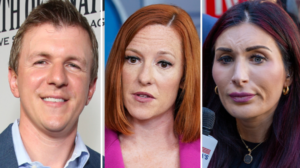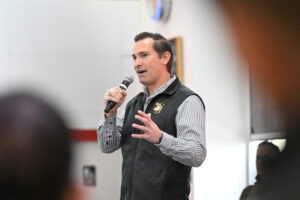The Dictatorship
Why Bill Clinton was so afraid of bond traders — and Donald Trump should be too
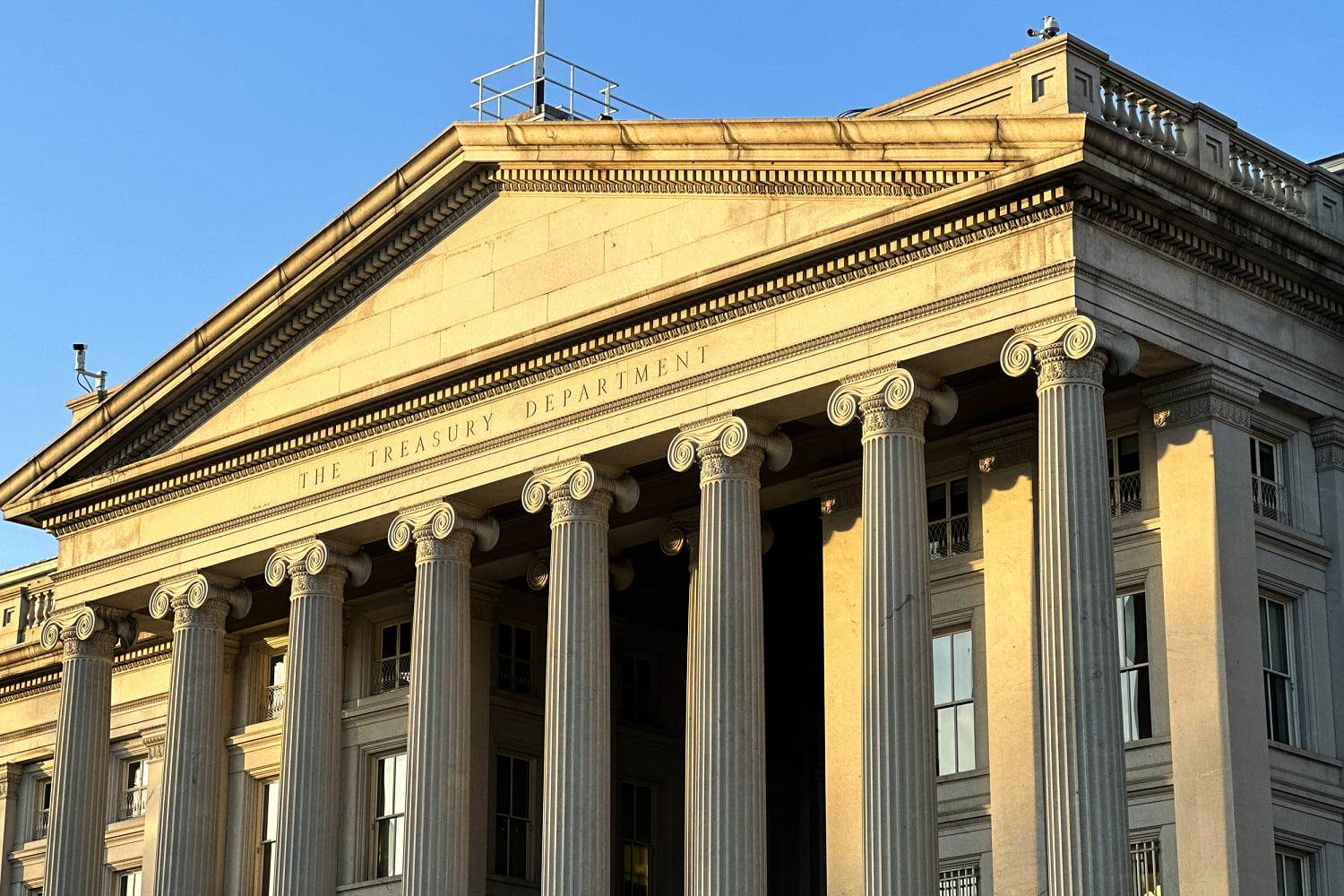
President-elect Donald Trump will sweep into office in January with few formal checks to his power. Republicans control the House and Senatewhile a conservative majority sits on the Supreme Court. For his critics, it’s a dispiriting time.
But as other presidents have learned, there are some checks and balances that aren’t described in your AP Gov textbook.
An unlikely one surfaced recently as veteran Wall Street strategist Ed Yardeni cautioned that investors in U.S. bonds could play a critical role in forcing the incoming Trump administration to back down from its plans for an all-out trade war with everyone from China to Mexico and Canada.
Reviving a term he first coined in the 1980s, Yardeni warned that “bond vigilantes” could take action if Trump’s plans go too far.
Like Batman, these vigilantes only swing into action when the system isn’t working. Instead of putting on a costume and roughing up street punks, though, they simply sell off 10-year government bonds when they think the government isn’t being serious about long-term fiscal policy. That may not sound dramatic, but it can have huge effects, raising the costs of government borrowing and even forcing the Federal Reserve to change course.
There’s a great anecdote demonstrating exactly how serious this threat can be in Bob Woodward’s book “The Agenda,” about the early days of Bill Clinton’s presidency. The Arkansas governor had not yet taken office when he sat down for a briefing on his economic plans. One of his advisers then explained how a lot would depend on whether bond traders thought his plans to reduce the deficit were credible.
“At the president-elect’s end of the table, Clinton’s face turned red with anger and disbelief,” Woodward wrote. “‘You mean to tell me that the success of my program and my re-election hinges on the Federal Reserve and a bunch of f—— bond traders?’ he responded in a half-whisper.”
More recently, bond vigilantes in Great Britain were blamed for the downfall of Prime Minister Liz Truss. After she announced a package of energy subsidies and tax cuts that would be paid for by raising deficits, investors in British government bonds rebelled, causing interest rates to rise and hurting the pound. Truss’ party revolted, and she was forced to resign after just a few months in office, famously outlasted by a slowly rotting head of lettuce.
There’s no risk of something quite so dramatic in the U.S., where bond traders don’t have nearly as much influence due to the strength of the dollar. But Wall Street analysts point to ways in which Trump’s plans to dramatically disrupt the federal government and foreign trade could backfire on him.
If bond traders start to think that deficits are getting too high due Trump’s tax cuts, they could get antsy.
If bond traders start to think that deficits are getting too high due to Trump’s tax cuts and inflation is going to make a comeback due to his tariffs, they could get antsy. If they start selling, the government has to raise interest rates to compensate, borrowing gets more expensive, the Federal Reserve starts worrying more about inflation, local chambers of commerce start nervously calling up their Republican representatives — and suddenly Trump doesn’t have quite so compliant a Congress.
The same dynamic can play out in a number of different ways over the next four years, in part due to Trump’s blunt-force proposals for his second term.
Trump’s plans for mass deportations will be checked by responses from civil rights activists, immigration lawyers, farmers, Democratic state attorneys general, federal judges and foreign officials. His plans for slashing government programs will be balanced by angry constituents, labor unions, government contractors and special interest groups. And many of his plans can be thwarted by sufficient public outrage, especially as lawmakers start looking ahead to the midterms.
Trump has grand plans to remake America. He will succeed in some and fail at others. But in all of them he will face a rule of politics as ironclad as Newton’s third law of motion: Every action he takes will have an equal and opposite reaction somewhere else.
The first response to watch may very well be from vigilante bond traders. But there will be others to come, and often from equally unlikely quarters.
Ryan Teague Beckwith is a newsletter editor for BLN. He has previously worked for such outlets as Time magazine, Bloomberg News and CQ Roll Call. He teaches journalism at Georgetown University’s School of Continuing Studies.
The Dictatorship
White House hall of shame targets news outlets
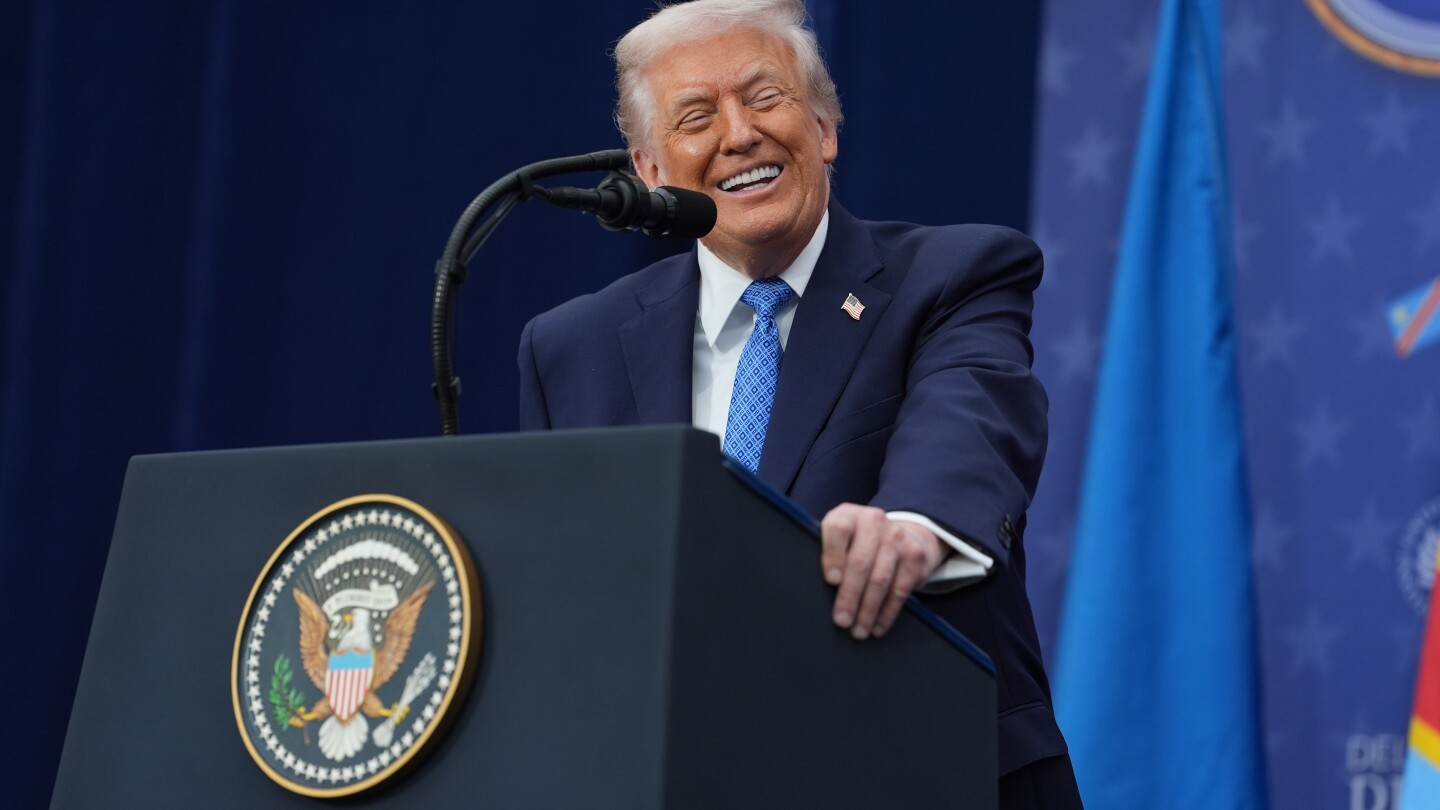
NEW YORK (AP) — President Donald Trump’s White House is taking on the role of media critic and asking for help from “everyday Americans.”
The White House launched a web portal it says will spotlight bias on the part of news outlets, targeting the Boston Globe, CBS News, The Independent and The Washington Post in its first two “media offenders of the week.”
It’s the latest wrinkle in the fight against what Trump, back in his first term, labeled “fake news.” The Republican president has taken outlets like CBS News and The Wall Street Journal to court over their coverage, is fighting The Associated Press in court over media access and has moved to dismantle government-run outlets like Voice of America.
Trump has also engaged in personal attacks, last month alone saying “quiet, piggy,” to a female reporter who was questioning him on Air Force One, calling a reporter from The New York Times “ugly, both inside and out” and publicly telling an ABC News journalist she was “a terrible reporter.”
“It’s honestly overwhelming to keep up with it all and to constantly have to defend against this fake news and these attacks,” said press secretary Karoline Leavitt, who called the new web portal an attempt to hold journalists accountable.
After its debut, the White House asked for volunteers to submit their own examples of media bias. “So-called ‘journalists’ have made it impossible to identify every false or misleading story, which is why help from the American people is essential,” Trump’s press office said.
Devouring the media like hot french fries
Despite the attacks, Axios wrote this week that the mainstream media is ending the year as “dominant as ever” in capturing the president’s attention and setting Washington’s agenda, citing as one example The Washington Post’s reporting on military strikes against boats with alleged drug smugglers.
The irony is that Trump engages with reporters at a level he hasn’t seen with any other president in his lifetime, said Axios CEO Jim VandeHei, co-author of the report with Mike Allen.
“He’s always bitched about the media and the press,” VandeHei told The Associated Press. “He gobbles this stuff up like hot McDonald’s french fries. He’s a mass consumer of this. He watches it, he calls reporters, he takes calls from reporters. … That’s always been the contradiction with him.”
CBS, the Globe and The Independent were criticized for stories about Trump’s reaction to Democratic lawmakers who recorded a video reminding military members they were not required to follow unlawful orders. Trump accused the lawmakers of sedition “punishable by death.”
The White House said it was a misrepresentation to say Trump had called for their executions. The portal also said news outlets “subversively implied” that the president had issued illegal orders. The news articles they cited did not specifically say whether Trump had or had not ordered illegal activities.
Leavitt has been sharply critical of the Post’s story on Defense Secretary Pete Hegseth’s role in attacks on boats used by alleged drug smugglers in Central America. The portal this week accused the newspaper of trying to undermine anti-terrorist operations.
“Let’s be clear what’s happening here: the wrongful and intentional targeting of journalists by government officials for exercising a constitutionally protected right,” said the Post’s executive editor, Matt Murray. “The Washington Post will not be dissuaded and will continue to report rigorously and accurately in service to all of America.”
The new portal also contains an “Offender Hall of Shame” of articles it deems unfair and a leaderboard ranking outlets with the most pieces it objects to. Twenty-three outlets are represented, led by the Post’s six stories. CBS News, The New York Times and MS NOW, the network formerly known as BLN, had five apiece. No news outlets that appeal to conservatives were cited for bias.
Media watchdog welcomes the company
The conservative media watchdog Media Research Center, which has accused news outlets of having a liberal bias since 1987, welcomes the company.
“We’re pleased,” said Tim Graham, MRC’s director of media analysis. “It’s a stronger effort than Republican presidents have done before. I think all Republicans realize today that the media is on the other side and need to be identified as on the other side.”
VandeHei said about the portal, “I can’t think of anything I care less about. If they want to set up a site and point out bias, great. It’s called free speech. Do it. I don’t think it makes a damned bit of difference.”
What is damaging, VandeHei said, is a constant drumbeat of claims that what people read in the media is false. “It makes people suspicious of the truth and the country suffers when we’re not operating from some semblance of a common truth,” he said.
___
David Bauder writes about the intersection of media and entertainment for the AP. Follow him at http://x.com/dbauder and https://bsky.app/profile/dbauder.bsky.social.
The Dictatorship
Trump administration fails in latest bid to halt grants for school mental health workers
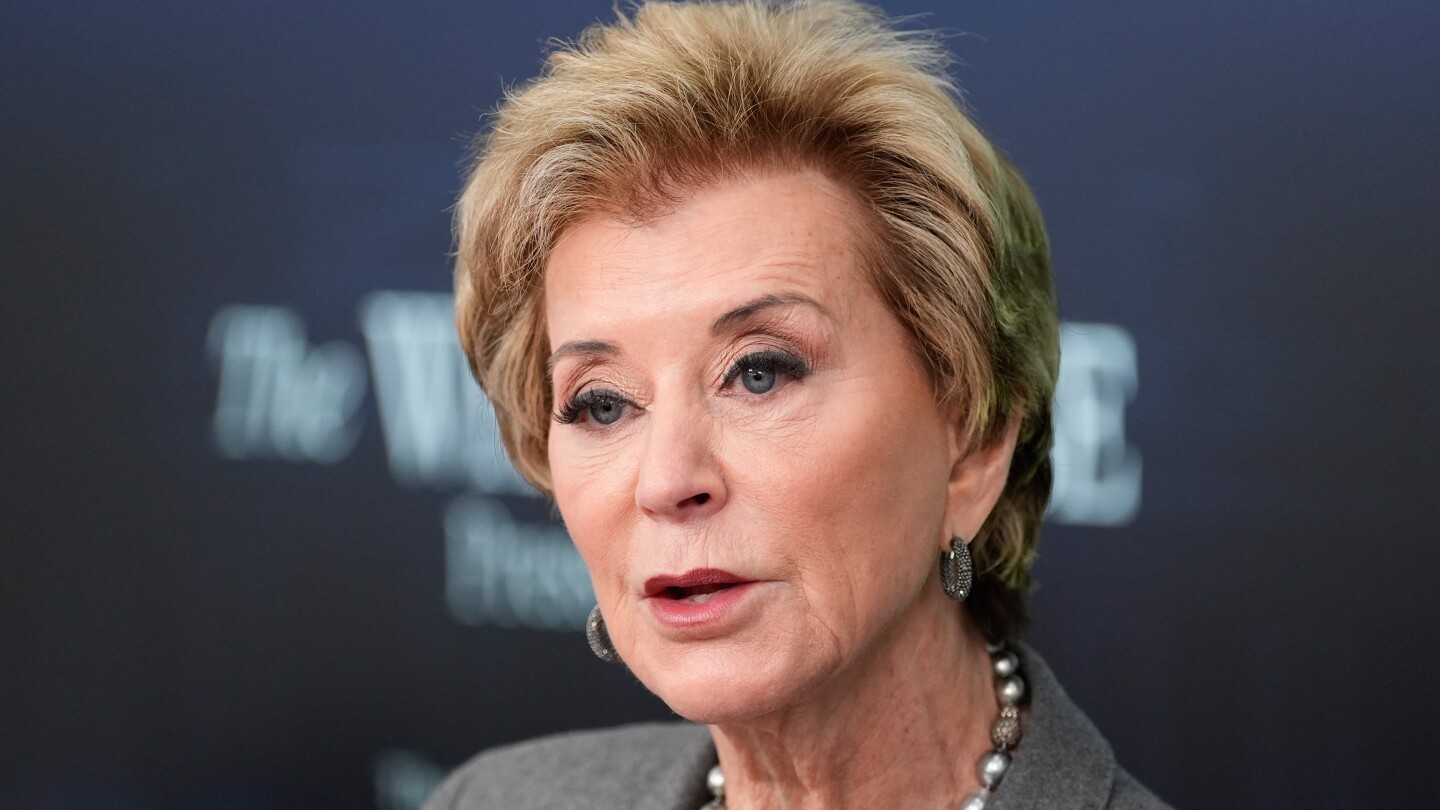
SAN FRANCISCO (AP) — A federal appeals court on Thursday rejected the Trump administration’s bid to halt an order requiring it to release millions of dollars in grants meant to address the shortage of mental health workers in schools.
The mental health program, which was funded by Congress after the 2022 school shooting in Uvalde, Texasincluded grants meant to help schools hire more counselors, psychologists and social workers, with a focus on rural and underserved areas of the country. But President Donald Trump’s administration opposed aspects of the grant programs that touched on race, saying they were harmful to students and told recipients they wouldn’t receive funding past December 2025.
U.S. District Judge Kymberly K. Evanson, ruled in October that the administration’s move to cancel school mental health grants was arbitrary and capricious.
The U.S. Department of Education and Secretary of Education Linda McMahon requested an emergency stay and on Thursday, a panel from the 9th U.S. Circuit Court of Appeals denied that motion.
The panel wrote in its decision that the government hadn’t shown it is likely to succeed based on its claims that the district court doesn’t have jurisdiction or that it will be “irreparably injured absent a stay.”
The grants were first awarded under Democratic President Joe Biden’s administration. The Education Department prioritized giving the money to applicants who showed how they would increase the number of counselors from diverse backgrounds or from communities directly served by the school district.
Stay up to date with the news and the best of AP by following our WhatsApp channel.
The Trump administration said in a statement after the ruling in October that the grants were used “to promote divisive ideologies based on race and sex.”
The preliminary ruling by Evanson, a U.S. District Court judge in Seattle, applies only to some grantees in the 16 Democratic-led states that challenged the Education Department’s decision. In Madera County, California, for example, the ruling restores roughly $3.8 million. In Marin County, California, it restores $8 million.
The Dictatorship
Trump will visit Pennsylvania next week to highlight his efforts to reduce inflation
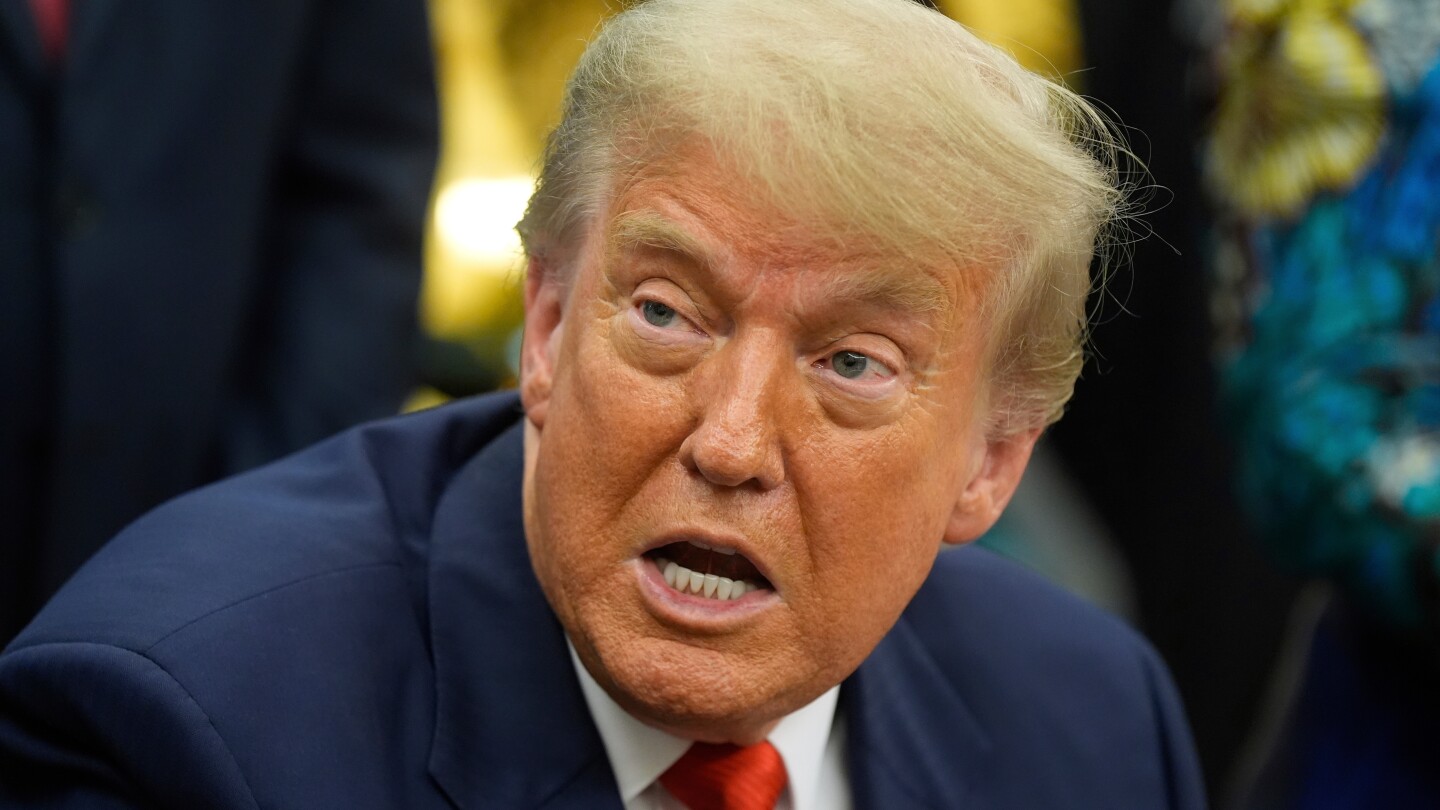
WASHINGTON (AP) — President Donald Trump plans to travel to Pennsylvania on Tuesday to highlight his efforts to reduce inflation even as fears mount about a worsening job market and amid signs that Americans are still feeling squeezed by high prices.
A White House official said Trump would be making the trip to discuss ending the inflation crisis that he says was inherited from his predecessor, Joe Biden. The official spoke on condition of anonymity because the trip has not been formally announced. It was not immediately clear where in Pennsylvania Trump would be visiting.
Last month’s off-year elections showed a shift away from Republicans as public concerns about affordability persist. White House officials said afterward that Trump — who has done relatively few events domestically — would put a greater emphasis on talking directly to the public about his economic policies.
The president has said that any affordability worries are part of a Democratic “hoax” and that people simply need to hear his perspective to change their minds — an approach also embraced by Biden, who in early 2024 went to the Pennsylvania borough of Emmaus to take credit for economic improvements after inflation spiked in 2022.
The trip hints the dilemma faced by Trump. He wants to take credit for rewiring the U.S. economy with his large tariff hikes and extension of income tax cuts, but he also continues to blame Biden for the increase nationwide in inflation rates that occurred this year during his own presidency. Overall, inflation is tracking at 3% annually, up from 2.3% in April when Trump rolled out a sweeping set of import taxes.
“We fixed inflation, and we fixed almost everything,” Trump said at Tuesday’s Cabinet meeting. He called affordability “a hoax” that was “started by the Democrats who caused the problem of pricing.”
Trump won Pennsylvania narrowly last year with 50.4%, besting Democrat Kamala Harris by roughly 120,000 votes. The win was part of a broader sweep in battleground states that helped return him to the White House after his 2020 loss.
AP VoteCast, an extensive survey of voters in the 2024 election, found that 7 in 10 Pennsylvania voters were “very concerned” about the cost of food and groceries. Roughly half expressed the same degree of worry over health care costs and the price of gasoline.
While Trump can point to a decline in gasoline prices, he’s now facing inflationary pressures on utilities and a massive increase in insurance premiums for people who get their health care through the Affordable Care Act.
Pennsylvanians who buy their own health insurance coverage are likely to see their costs increase on average by 21.5% because of the expiration of tax credits tied to the Affordable Care Act, the state said in October.
Pennsylvania has yet to see the boom that Trump promised would instantly happen with his return to the White House.
The state has largely preserved its Biden era job growth under Trump, but its unemployment rate has risen to 4% from 3.6% over the past 12 months, according to the Bureau of Labor Statistics. There has been an increase of roughly 24,000 people who say they’re unemployed.
Annual inflation in the Philadelphia area is 3.3%, roughly the same as last year.
The Philadelphia Federal Reserve’s Beige Book in November documented an economy in decline, saying that hiring has flattened, warehouse workers are getting fewer hours on the job, inflationary pressures are coming from tariffs and sales of existing homes are decreasing. Separately, the regional Fed branch’s manufacturing survey last month showed that factory activity weakened.
The news outlet Axios first reported Trump’s plans to travel to Pennsylvania.
-

 Politics10 months ago
Politics10 months agoFormer ‘Squad’ members launching ‘Bowman and Bush’ YouTube show
-
Uncategorized1 year ago
Bob Good to step down as Freedom Caucus chair this week
-

 The Dictatorship10 months ago
The Dictatorship10 months agoPete Hegseth’s tenure at the Pentagon goes from bad to worse
-

 Politics10 months ago
Politics10 months agoBlue Light News’s Editorial Director Ryan Hutchins speaks at Blue Light News’s 2025 Governors Summit
-

 The Dictatorship10 months ago
The Dictatorship10 months agoLuigi Mangione acknowledges public support in first official statement since arrest
-

 The Josh Fourrier Show1 year ago
The Josh Fourrier Show1 year agoDOOMSDAY: Trump won, now what?
-

 Politics8 months ago
Politics8 months agoDemocrat challenging Joni Ernst: I want to ‘tear down’ party, ‘build it back up’
-

 Politics10 months ago
Politics10 months agoFormer Kentucky AG Daniel Cameron launches Senate bid





